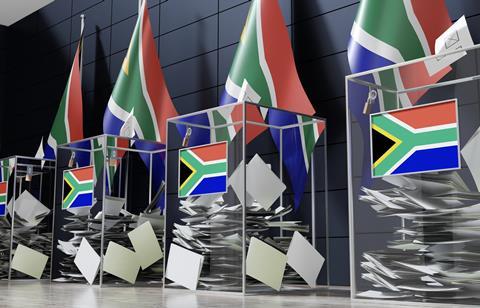As the dust begins to settle on the results of last week’s South African national election, it is clear that the political landscape is changing dramatically
South Africa’s African National Congress (ANC) is coming to terms with the vote of no confidence in the government given by the electorate.

For the first time since the dramatic developments back in 1994, when the ANC under Nelson Mandela became the governing party in South Africa, it failed to gain majority control and has been forced into power sharing in order to stay in government.
The ANC has now entered into a government of national unity (GNU) with the opposition parties, the Democratic Alliance (DA), the Inkhata Freedom Party (IFP) and the Patriotic Front (PA). This is a new development in South Africa because the ANC has had things all its own way for the past 30 years.
Observers said this would shake up things as never before – with the whole country being affected by a concept of government which up until now has been foreign to the South African political landscape.
The new GNU is likely to attract other minority parties, but the Economic Freedom Fighters (EFF) and the newly formed MK Party of former president Jacon Zuma have shunned the GNU initiative and are likely to sit on the sidelines for the next five years.
Zuma’s party has done remarkably well by securing more than 40 per cent of the vote in the densely populated KwaZulu-Natal. Nationally it only received under 15 per cent of the vote and will therefore have little say in matters during the seventh term of government since 1994.
Cyril Ramaphosa, with his old foes in parliament, the DA and the IFP supporting him, has been re-elected as President for another term.
The question on everyone’s lips is just how these changes will affect the affairs of government and the lives of ordinary citizens.
Apart from the fact that everyone in the GNU will have to get used to the idea of ‘scrumming together’, the shake-up caused by those South Africans so clearly voting for significant change, is likely to bring upheaval.
Several Cabinet ministers have lost their jobs or decided to retire, and new cabinet posts will be distributed between the partners.
The urgency of economic growth to boost job creation, reduce hunger and improve services is likely to be high on the agenda.
To do this, the new government is likely to promote private and public sector partnerships, improve infrastructure and address the energy and transport sectors, including the efficiency of ports and other logistics systems.
South Africa’s foreign relations and foreign policies are likely to come under scrutiny yet again – and it is certain that trading partners such as the EU, UK and the US, as well as the current BIRCS partners that South Africa has strongly supported in the past, will also watch developments down south.



